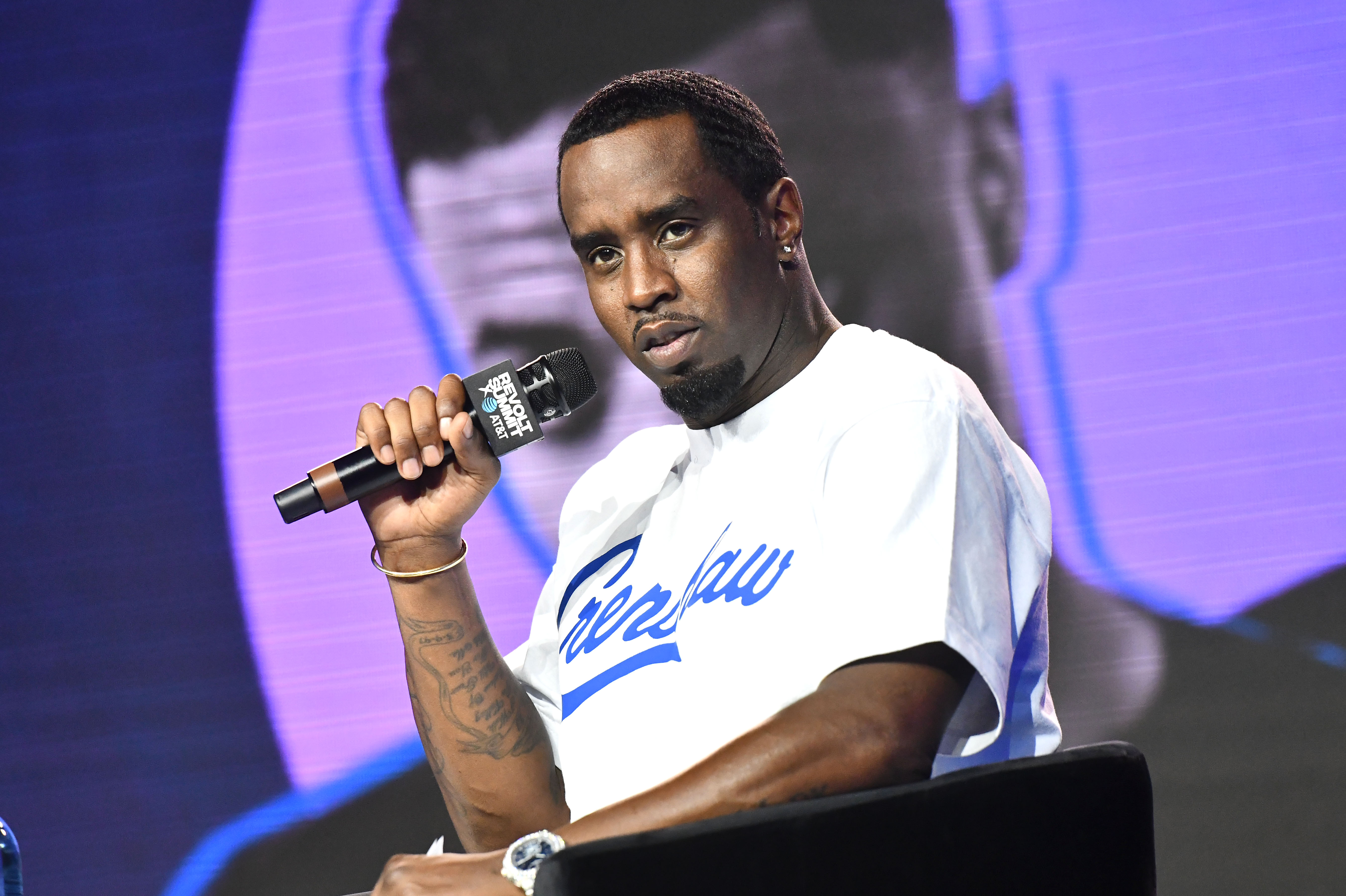Revolt's Combs: Comcast Provides 'Illusion' of Inclusion

The smarter way to stay on top of broadcasting and cable industry. Sign up below
You are now subscribed
Your newsletter sign-up was successful
Sean "Diddy" Combs, whose Revolt network Comcast has pointed to in arguing it does not discriminate against minority-targeted networks, said Comcast's reference to Revolt is off base.
That came in a public statement cited by Byron Allen, who is suing Comcast over alleged discrimination against his networks. As part of its defense, Comcast has pointed out that it carries Revolt.
Related: Diddy Uses Kaitz Moment for Diversity Message (2017)
"[E]ntrepreneurs who started the channels ASPiRE, REVOLT, AFRO, and CLEO TV, have all launched with our support," a Comcast spokesperson said last week in response to criticisms of its suit leveled by Rep. Bobby Rush (D-Ill.).
"While it is true that we are in business with Comcast, it is not accurate to use my name or my network as an example of inclusion," said Combs. "First, it's important that people really understand what's at stake. In its efforts to get the lawsuit filed by Byron Allen dismissed, Comcast has taken a legal approach that could weaken fundamental civil rights protections. I have a problem with this. The Civil Rights Act of 1866 section 1981 was designed to ensure Black people are able to do business in this country and not be denied because of race. Comcast is arguing that this law only applies if racial discrimination is the only factor that leads to a refusal to do business, which would be extremely hard to prove. If they are successful, it will become much harder for any victim of discrimination to seek justice in court.
"By taking this stance in the Supreme Court," he said, "Comcast has put its legal tactics ahead of the rights of millions of Americans to be heard. This is not OK."
The Supreme Court earlier this month heard oral argument in Comcast's challenge to a court decision on a suit spearheaded by Entertainment Studios chief Byron Allen against Comcast for allegedly discriminating in its non-carriage of networks. The lower court rejected Comcast's motion to dismiss the suit.
The smarter way to stay on top of broadcasting and cable industry. Sign up below
Allen and the National Association of African American Owned Media brought the suit in 2015, claiming damages of $20 billion. A federal court dismissed the suit three times, but the decision was reversed by the U.S. Court of Appeals for the Ninth Circuit a year ago. Comcast wants the Supreme Court to reverse the Circuit Court decision, disputing Allen’s claims of a “vast conspiracy” to keep his networks off, pointing to the carriage of Revolt, among other nets, as evidence. Comcast argues that discrimination would have to be the "but for" cause of non-carriage, not simply a factor, and that the real "but for" was that the cable operator would have carried the networks but for the fact that there were solid business reasons not to, a point Allen strongly disputes.
"By taking this stance in the Supreme Court, Comcast has put its legal tactics ahead of the rights of millions of Americans to be heard. This is not OK," said Combs."Comcast has made this about much more than Byron Allen, and now the civil rights of my children and my community are at stake. To be clear, anything that makes it harder to fight against discrimination is wrong. Comcast is choosing to be on the wrong side of history....REVOLT has never been in a position to truly compete on a fair playing field because it has not received the economic and distribution support necessary for real economic inclusion. Our relationship with Comcast is the illusion of economic inclusion."
Allen, who pointed reporters toward the statement, suggested he would be using it as evidence at trial.
"Today's statement from Sean 'Diddy' Combs proves our case," said Byron Allen, CEO of Entertainment Studios. "Mr. Combs' statement, and a lot more additional evidence from many others, is the reason Comcast does not want us to have our day in court, because Comcast knows we will prevail."
“Comcast is proud of our strong commitment to diversity and inclusion, including an unmatched record of supporting diverse and independent networks, carrying 160 independent networks like Revolt, 100 of which are targeted to diverse audiences," said Comcast senior EVP and chief diversity officer. "We are also proud to have launched eight new minority owned cable channels since 2011, including being the first company to launch Revolt and to bring the channel into millions of homes. From the start, we provided a long-term commitment to carriage of the channel and to its success as well as other African American owned channels that we carry on our systems. We are fierce defenders of the civil rights of minorities and women in America – and of the civil rights laws. It has always been our intention to maintain the strength of the civil rights laws, and we believe a review of the oral argument at the Supreme Court demonstrates that. Based on the oral argument, any fears that this case would have broad implications on civil rights enforcement have been proven unfounded.”
Contributing editor John Eggerton has been an editor and/or writer on media regulation, legislation and policy for over four decades, including covering the FCC, FTC, Congress, the major media trade associations, and the federal courts. In addition to Multichannel News and Broadcasting + Cable, his work has appeared in Radio World, TV Technology, TV Fax, This Week in Consumer Electronics, Variety and the Encyclopedia Britannica.

